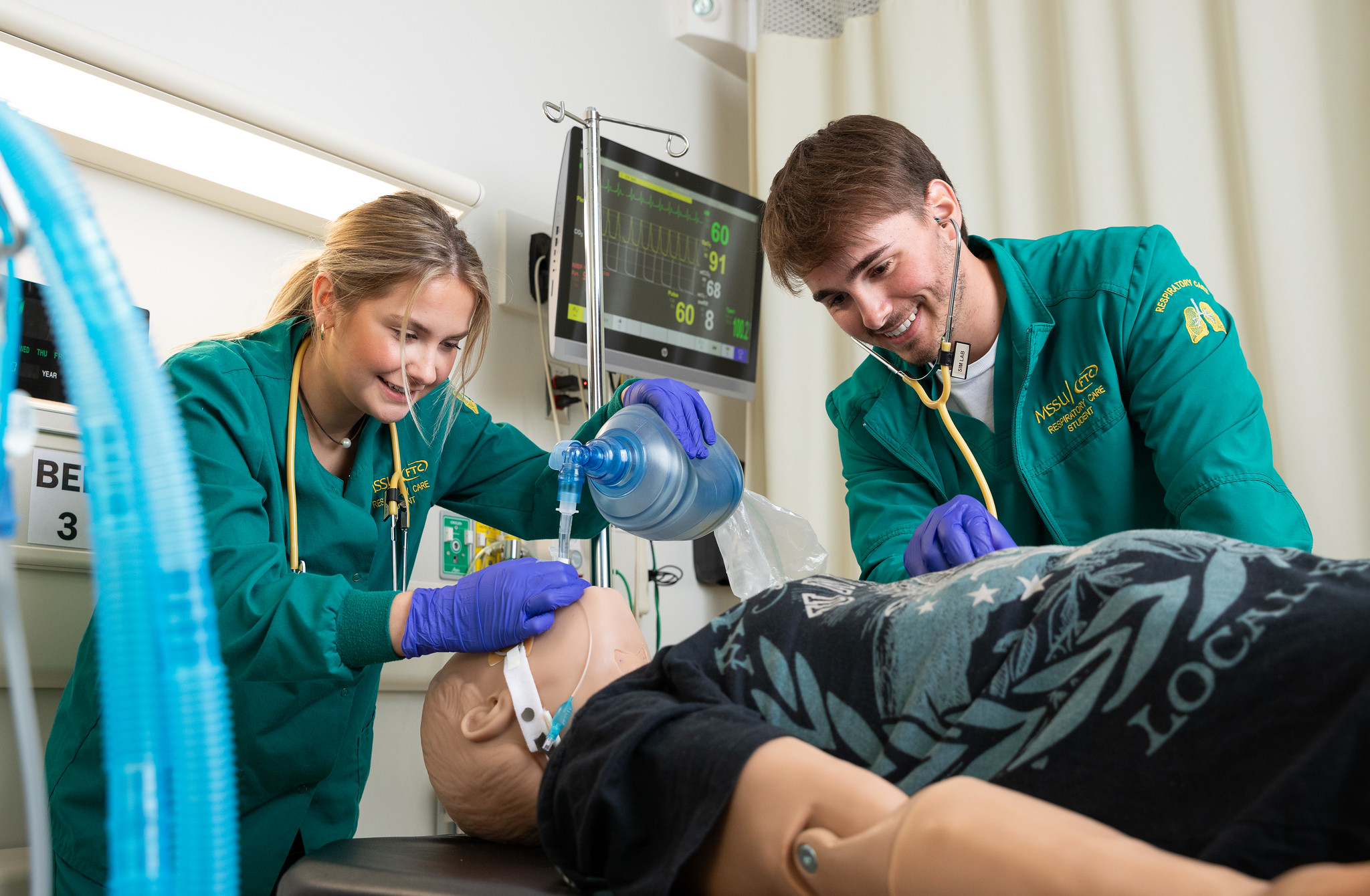
A career in the medical field can be a dynamic and rewarding opportunity. The changing nature of the medical profession is creating a demand for multi-skilled health professionals with communication, interpersonal, and excellent clinical skills such as the Respiratory Care Practitioner. The Respiratory Care Program is designed to prepare students to be employed in the hospital, clinic, laboratory, and alternate care settings such as the patient's home. Respiratory care practitioners perform a variety of clinical, diagnostic, and management functions in these settings.
The FTC-MSSU Consortium for Respiratory Care Education, an Associate of Science in Respiratory Therapy Degree Program located at 3950 East Newman Road in Joplin, Missouri, is accredited by the Commission on Accreditation for Respiratory Care https://www.coarc.com/.
Graduates of the program will:
Registered respiratory care practitioners function in a wide variety of settings. As clinicians they work in adult intensive care units, pediatric and neonatal intensive care units, emergency and trauma units, operation and recovery rooms, rehabilitation programs, home health agencies, and a variety of cardiopulmonary diagnostic laboratories. Some graduates pursue advanced degrees in management, education, public health, or the biomedical sciences. Graduate degrees lead to positions in educational institutions in teaching or research capacities. Senior respiratory care practitioners may be responsible for the management and operation of respiratory care departments.
Respiratory Care Students must demonstrate numerous competencies representing all three learning domains: the cognitive, psychomotor, and affective domains. Students learn, practice, and verify these competencies in a number of settings including the classroom, laboratory, and clinic. To achieve the required competencies in the classroom setting, respiratory care students must perceive, assimilate, and integrate information from a variety of sources. These sources include oral instruction, printed material, visual media, and live demonstrations. Students must participate in classroom discussion, give oral reports, and pass written and/or computer-based examinations of various formats. Completion of these tasks require cognitive skills, such as reading, writing, and problem-solving. To be physically capable of the classroom work, students must, with assistance, be able to: hear, see, speak, sit, and touch. Respiratory care laboratories provide students with the opportunity to view demonstrations, evaluate and practice with medical devices, and perform simulated clinical procedures. In addition to the cognitive skills required in the classroom, students must demonstrate psychomotor skills in manipulation of patients and equipment, as well as general professional behaviors, like team-building and interpersonal communications. To satisfy laboratory and clinic requirements, students must perform all procedures without critical error.
Outcomes data is posted on the CoARC website. Follow this link directly to the Programmatic Outcomes Data page:
https://coarc.com/students/programmatic-outcomes-data/
The MSSU/FTC consortium for Respiratory Care education, CoARC program number 200432, Associate of Science in Respiratory Care, MSSU 3950 E NEWMAN RD, JOPLIN, MO 64801, is accredited by the Commission on Accreditation for Respiratory Care (CoARC.com).CoARC accredits respiratory therapy education programs in the United States. To achieve this end, it utilizes an ‘outcomes based’ process. Programmatic outcomes are performance indicators that reflect the extent to which the educational goals of the program are achieved and by which program effectiveness is documented.
Alyssa Taylor
Respiratory Care Program Director
Phone: 417-659-4405
Email: taylor-a@mssu.edu